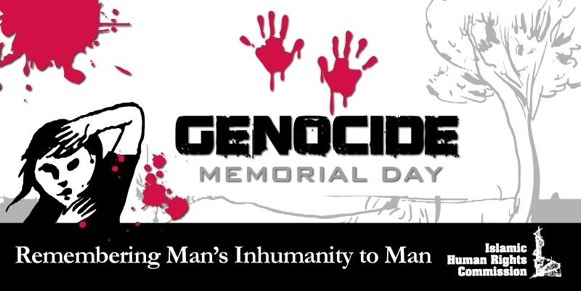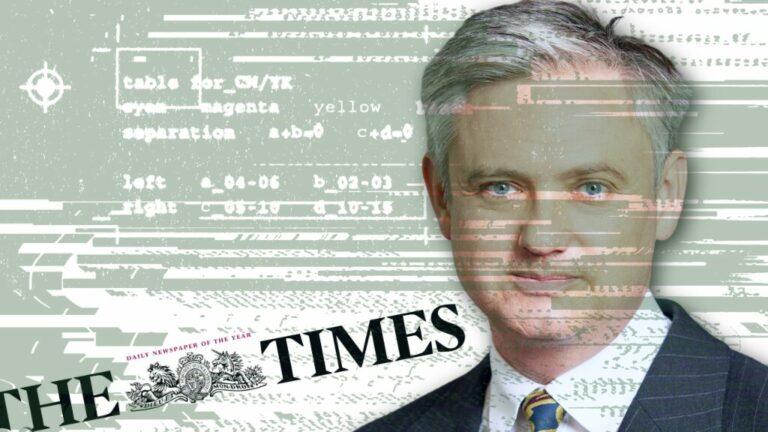Below are some suggested books for use primarily in English Language and Literature classes, as well as citizenship and religious studies. These titles can be purchased in various places including the IHRC Bookshop (where available the books are hyperlinked to the shop). You can purchase copies at a discount of 15% at the IHRC Bookshop using the code BOOKS4SCHOOLS at the checkout. If you wish to buy more than 10 copies please contact the shop directly to ask for a larger discount on shop@ihrc.org or call us on +44 20 8904 4222. The IHRC Bookshop can ship orders outside of the UK.
Ages 9+
Lines in the Sand: New Writing on War and Peace by Mary Hoffman
This anthology about war and peace contains poems, short stories and illustrations from 135 contributors from around the world. Written in response to the recent devasting events in Iraq, the result is a thought-provoking medley of messages fostering peace. A wide range of conflicts are featured: the Gulf War, Northern Ireland, Croatia, Kosovo, Afghanistan, Nigeria, the Falklands War, the Spanish Civil War, the two World Wars and many more.
My Name Was Hussein by Hristo Kyuchukov
Based on the author’s life, this picture book traces the experiences of a young Roma boy who lives in Bulgaria. Hussein introduces readers to the blend of many cultures and traditions that his family has incorporated over the centuries: the henna hand painting from India, the observance of Muslim religious ceremonies, and an Arabic name passed down through generations. When communist soldiers arrive in their village, their freedom is curtailed. Hussein and his brother miss the celebrations they were used to, but the greatest indignity is being forced to adopt “Christian names.”
The Grand Mosque of Paris by Karen Ruelle, Deborah Desaix
Beautifully illustrated and thoroughly researched, this compelling book reveals the almost unknown story of how French Muslims’ courage, faith, and devotion to justice saved the lives of so many Jews during World War II
The Island by Armin Greder
Islanders find a man on the beach. He isn’t like them. They want to send him back to sea, but they don’t want to be responsible for his death. They take him in, but lock him in a goat pen. He needs food, so they give him the pigs’ scraps and lock him up again. The islanders imagine the evil the man could do. Growing restless and fearful, they march him to his raft and force him out to sea. They build a high wall around the island so that outsiders can’t trouble them again.
When Hitler Stole Pink Rabbit by Judith Kerr
Partly autobiographical, this is first of the internationally acclaimed trilogy by Judith Kerr telling the unforgettable story of a Jewish family fleeing from Germany at the start of World War II.
Where the Streets had a Name by Randa Abdel-Fattah
Thirteen-year-old Hayaat is on a mission. She believes a handful of soil from her grandmother’s ancestral home in Jerusalem will save her beloved Sitti Zeynab’s life. The only problem is the impenetrable wall that divides the West Bank, as well as the checkpoints, the curfews, and Hayaat’s best friend Samy, who is always a troublemaker.
Ages 10+
A Beautiful Lie by Irfan Master
Set in India during the summer of 1947, A Beautiful Lie follows the tumultuous events of the Partition of India through the eyes of Bilal who is looking after his ill father.
Anne Frank: The Diary of a Young Girl by Anne Frank
In July 1942, thirteen-year-old Anne Frank and her family, fleeing the occupation, went into hiding in an Amsterdam warehouse. Over the next two years Anne vividly describes in her diary the frustrations of living in such close quarters, and her thoughts, feelings and longings as she grows up. Her diary ends abruptly when, in August 1944, they were all betrayed.
Milkweed by Jerry Spinelli
Misha only has a name because his friend Uri gave it to him. He has no knowledge of who he is or where he came from; all he knows is that he has survived in Nazi-occupied Warsaw because he is very small and very quick. Milkweed is the story of life in the Warsaw ghetto as seen through the eyes of a child who has no history and lives for today because that is all that he knows
Unheard Voices by Malorie Blackman
This collection of writing about slavery was published to coincide with the 200 year anniversary of the Abolition of the Slave Trade Act 1807. Edited by Malorie Blackman, who herself contributes a powerful new short story, the anthology moves from themes of capture and transportation culminating in work surrounding the legacy of slavery.
Ages 12+
A Little Piece of Ground by Elizabeth Laird, Sonia Nimr
12-year-old Karim Aboudi and his family are trapped in their Ramallah home by a strict curfew. Israeli tanks control the city in response to a Palestinian suicide bombing. Karim longs to play football with his mates – being stuck inside with his teenage brother and fearful parents is driving him crazy. When the curfew ends, he and his friend discover an unused patch of ground that’s the perfect site for a football pitch. Nearby, an old car hidden intact under bulldozed buildings makes a brilliant den. But in this city there’s constant danger, even for schoolboys. And when Israeli soldiers find Karim outside during the next curfew it seems impossible that he will survive…
Maus by Art Spiegelman
The story of Vladek Spiegelman and his wife, living and surviving in Hitler’s Europe. By addressing the horror of the Holocaust through cartoons, the author captures the everyday reality of fear and is able to explore the guilt, relief and extraordinary sensation of survival – and how the children of survivors are in their own way affected by the trials of their parents.
Noughts & Crosses by Malorie Blackman
The population is divided into two: the white Noughts are second-class citizens, and the black Crosses are highly-revered and perceived as the superior race. 15-year-old Callum is a Nought, and his best friend, Sephy, as well as being a Cross, is also the daughter of one of the most influential politicians in the country. As well as being a compelling tale of love and friendship, this is an outstanding and thought-provoking exploration of the futility of prejudice. A contemporary classic.
Now is the Time for Running by Michael Williams
Deo’s family life is destroyed when government forces kill most of the inhabitants of his rural Zimbabwean village, including his beloved mother and grandfather. He escapes with his older brother, Innocent, whose learning difficulties and obsessive behaviour prove both a problem and an unlikely bonus. Together they flee across country in search of the South African they believe to be their father, witnessing terrible atrocities inflicted by troops, and hostility against refugees along the way.
Refugee Boy by Benjamin Zephaniah
Alem’s father is Ethiopian and his mother is Eritrean. Their countries are at war and Alem is not safe. He is not welcome in Ethiopia because he has Eritrean blood. He cannot live in Eritrea because his father is from Ethiopia. His father takes him to a place of safety but staying there will not be easy.
The Earth is Singing by Vanessa Curtis
By the middle of 1941, fifteen-year-old Hanna Michelson’s life has changed beyond recognition. First the Russians came and took away her beloved father, her language and the beautiful house she had grown up in. And then the Nazis arrived and took away everything else. Because Hanna is a Jew, her family, her possessions, her home, her dignity and ultimately her life must be forfeit to the Nazi ideology that has invaded her country. But Hanna promised her Papa she would survive to tell their story.
The Suitcase: Refugee Voices from Bosnia and Croatia by Julie Mertus
The whirlwind of Europe’s longest war in half a century has produced this powerful collection of personal narratives—essays, letters, and poems—from refugees fleeing Bosnia and Croatia. Taking us behind the barrage of media coverage, these stories tell of perseverance, brutality, forced departure, exile, and courage.
The Boy in the Striped Pyjamas by John Boyne
Bruno is unhappy when his Father is given an important new posting far away from Berlin. It means that he will have to move from his familiar, comfortable home and part from his friends. At nine years old, Bruno, like most German children, is unaware of the atrocities being committed by the Nazis. All he knows is that his father works for a person Bruno thinks is called ‘The Fury’. The new family home is a grim place. There are no young people to join in Bruno’s games and he is not encouraged to ask questions. Bruno is lonely. Then, by chance, he meets Shmuel, a boy who shares his birthday but lives in shadow, on the other side of a barbed wire fence.







